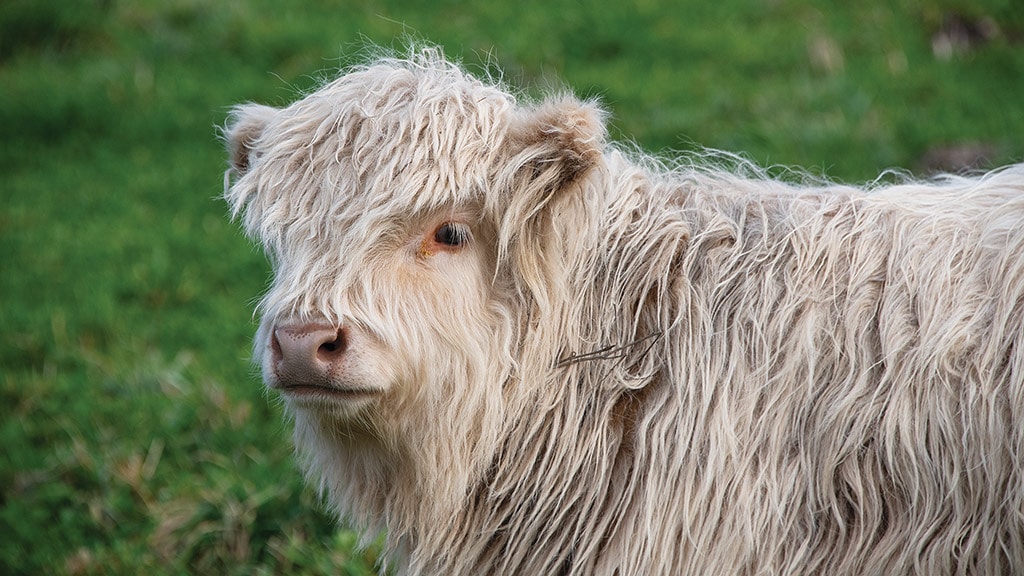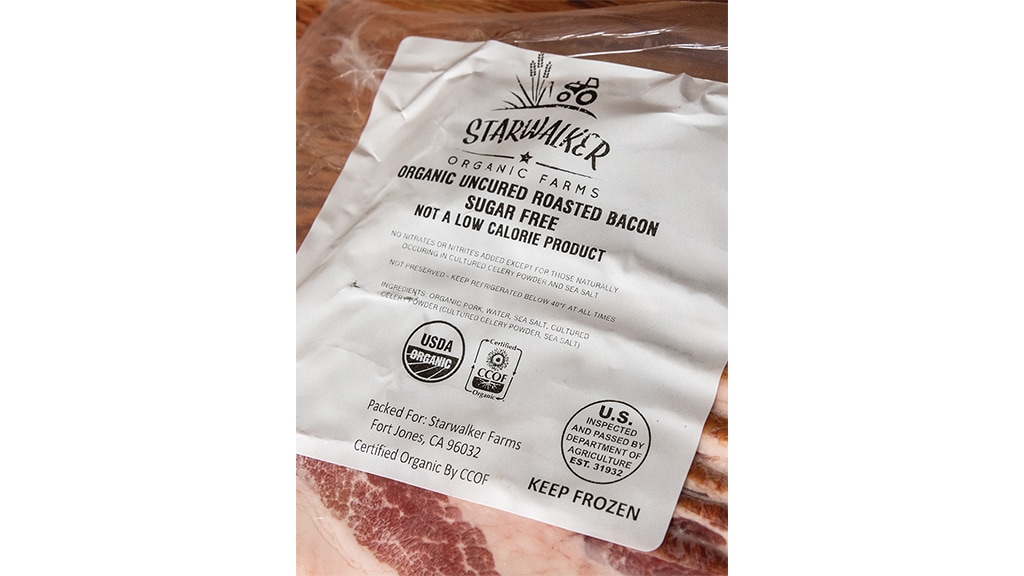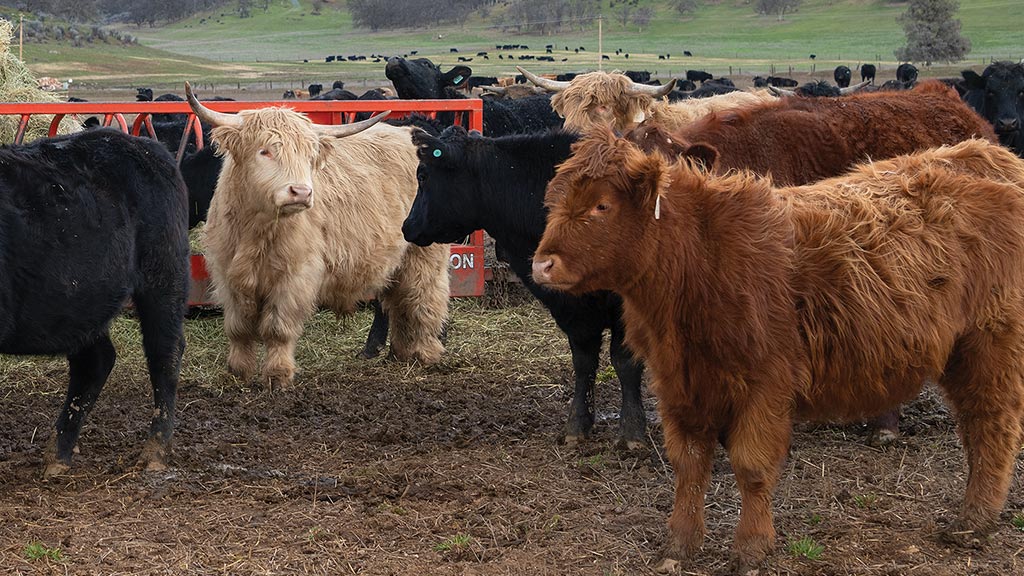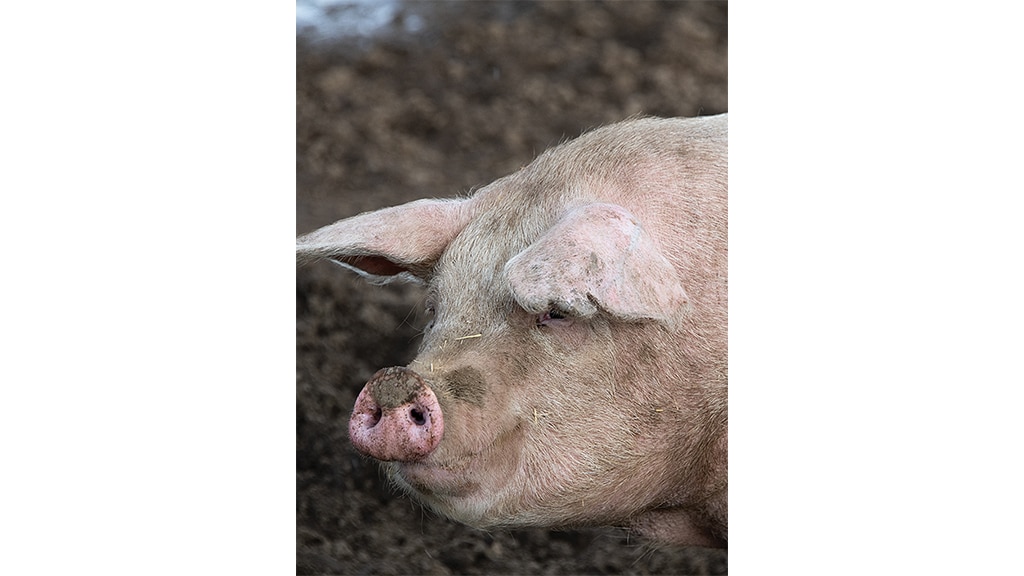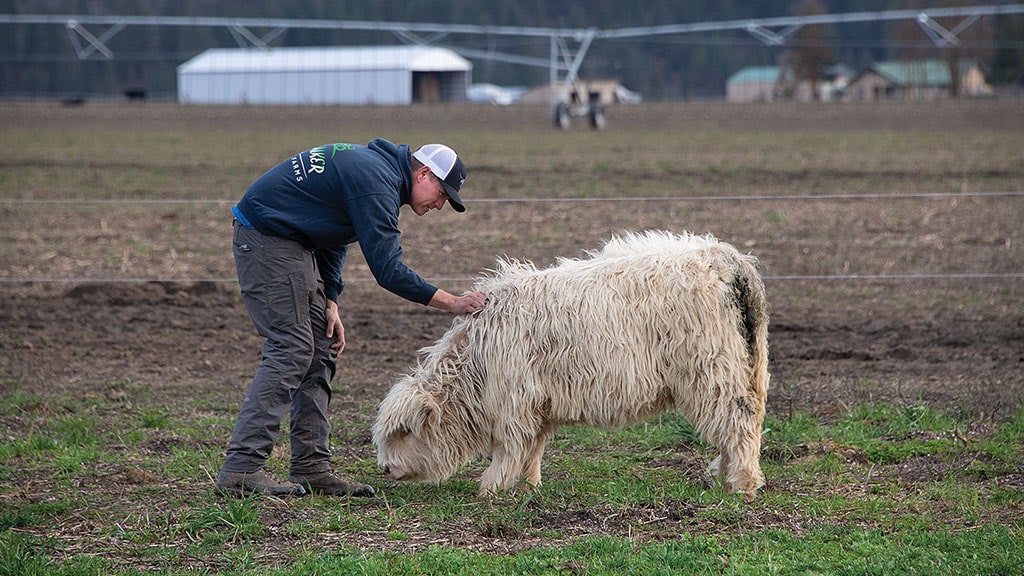
Jason and Kristina Walker share their regenerative ag story face-to-face and through social media.
Agriculture, Livestock/Poultry June 01, 2024
Reaching for the Stars
StarWalker Organic Farms shares regenerative story with beef and pork fans nationwide.
by Steve Werblow
Blame it on Grandma Dottie's pet elephant.
As a child riding Akili the elephant to the post office in tiny Etna, California, Kristina Walker knew there were no limits to her dreams. After all, her grandmother could realize her lifelong ambition to adopt a baby elephant, even in the isolated Scott Valley, nestled within the bulwark of mountains that separate California from Oregon. Anything was possible.
Jason and Kristina Walker have made big dreams come true on their third-generation family ranch. They employ regenerative practices to raise their crops, cattle, and pigs, and they ship organic hay, beef, and pork across the country. They pivoted from traditional livestock marketing to direct-to-consumer and value-added markets, and they have even gone viral on TikTok.
Along the way, their vision has grown to include creating opportunities for their neighbors and reaching out from their farm to a world of consumers eager for organic meat.
StarWalker Organic Farms is celebrating 50 years in business and 40 years in organic production. When Jason and Kristina came back to the ranch, they embraced the organic ethos. In fact, they took it a step further, adopting practices like cover crops, composting, and rotational grazing to build the soil and regenerate the ranch's resources.
Above. Bacon jerky has been a huge hit for StarWalker Organic Farms; organic consumers are eager for high-protein snacks, and jerky is cheaper and easier to ship than frozen meat. Bottle calf StellaBella has become a social media star.
Go direct. When the world went into lockdown in 2020 and Kristina closed her dance studio in Fort Jones, the Walkers decided to increase the size of their cattle and pig herds and sell their meat directly to consumers.
"We said, 'we've got the animals and we've got the interest, so let's move forward with this,'" says Jason. "We bumped up our pig herd, we bumped up our cattle herd and started buying yearlings along with our breeding group, and we started doing 9 or 10 farmers' markets a week."
With a flair for the dramatic, they built their herd around Scottish Highland cattle.
"Quite honestly, the Highlands just started because we wanted to be different," admits Jason. "The crazy part of it is they're awesome. You can't ask for a better animal as far as mothering, and they're super gentle and easy to work on."
Highland cattle were bred to spend their lives on grass, and their woolly coats keep them warm through the cold mountain winters while preventing them from putting on excessive fat. The result is a herd that can easily handle local conditions and turn a grass-fed, grass-finished diet into tasty, marbled beef.
As the StarWalker herd grew from what Jason calls "a hobby" of 16 cows to its current level of 500 to 600 finished head per year, the Walkers added Angus to the mix. Angus reach market weight 6 to 12 months faster than the Highlands do, and their lack of horns make them easier to handle at the packing plant. Still, Highland beef will remain a significant part of the StarWalker offering, the Walkers promise.
Whole-hog. Meanwhile, the pork side of the business has really taken off. Kristina points out that domestically produced organic pork is scarce in the U.S. Customers around the country have found StarWalker ranch through the Walkers' Google and Facebook ads as well as online searches for organic pork.
In addition to selling by the whole, half, or cut, StarWalker offers unique value-added products. No-sugar bacon is a huge seller. So are organic beef and bacon jerky—health-conscious consumers are looking for high-protein snacks, notes Kristina, and jerky is much easier to ship than fresh meat. There's also huge interest from nose-to-tail fans in bones and organ meats.
Above. Kristina Walker says many StarWalker Organic Farms’ customers seek out their organic, regenerative, and humane certifications. Distinctive Scottish Highland cattle have been joined by Angus on the ranch. Yorkshire/Landrace sows and their piglets thrive on pasture. Jason shares a quiet moment with StellaBella.
The Walkers currently run 150 Yorkshire/Landrace sows on pasture, bred by Duroc boars to contribute added hardiness. Their goal is to grow to 250 sows on their farm and buy hogs from neighbors interested in pigs.
"A lot of people want to grow pork, but there's a scale problem," Jason points out. "If you want to grow a dozen and sell them to friends, that's fine. But then you go to the next scale and you're too big for friends and family, but too small for retail. So here's an opportunity to raise as many as you want and we'll buy every single one of them from you."
The Walkers have even brought in about a dozen investors buying an interest in individual cows through their Cattle Club. It's all part of their effort to engage consumers and connect them to their food—wherever they are.
"Really, what our entire goal has been is to grow the crop here on our land; have the animals here from birth; give them a nice, healthy, great life; then take that product and get it to the consumer," says Kristina.
That's thinking big. ‡
Read More

AGRICULTURE, LIVESTOCK/POULTRY
Babette's Sweet Legacy
New England meets Iceland in this family's handmade skyr.

AGRICULTURE, SUSTAINABILITY
Car Park Produce
RISE Farm is Wichita's first rooftop farm.


